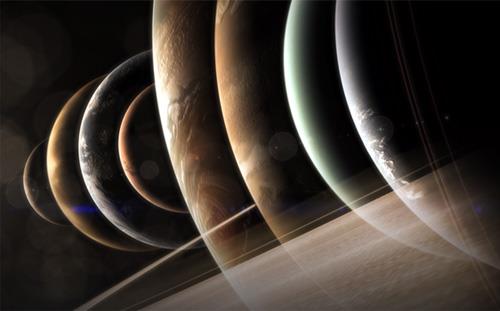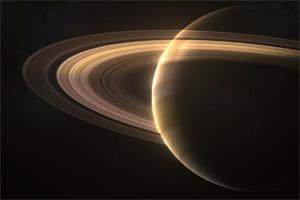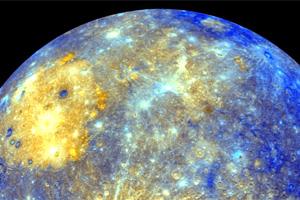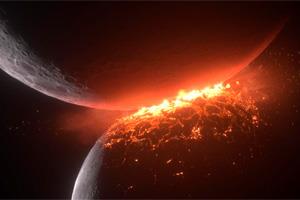
We better enjoy life here while we can, it turns out, because in a billion or so years, it will all be gone.
That’s the glass-half-empty takeaway from The Planets, an ambitious five-part series that premieres Wednesday at 9 p.m. ET on PBS’s Nova series (check local listings).
The Planets walks us through our solar system, starting with Mercury and ending with Uranus and a few nods to the perennially disrespected Pluto. As this suggests, much of the series addresses the science surrounding our whole little corner of the universe, and not infrequently the universe itself.
 It contemplates our solar system the way recent shows like BBCA’s Blue Planet explored the ocean and National Geographic has explored Earth’s fauna – in depth with the insight of smart people who have spent their lives learning about their broad subject.
It contemplates our solar system the way recent shows like BBCA’s Blue Planet explored the ocean and National Geographic has explored Earth’s fauna – in depth with the insight of smart people who have spent their lives learning about their broad subject.
The Planets, narrated by Zachary Quinto, doesn’t have quite the visual impact of the ocean or wildlife shows, simply because parallel photographs aren’t available.
Recent space exploration devices have sent back pictures of Mercury, or the moons of Saturn, that are breathtaking in the revelations they unveil and long-awaited gems for hard-core space fans.
For the more casual viewer, they just don’t have the impact of elephants or penguins. So The Planets is more likely to draw fascinated nods than gasps of delight.
The episodes gather the latest scientific thinking on both the origin of our planets and projections for what lies ahead – as in way ahead. Those two areas, to no one’s surprise, are closely linked.
At the beginning of our solar system, which formed after the universe itself had been in business for billions of years, conditions for life may have existed on several planets, including Venus and Mars as well as Earth.
The conditions for life mostly revolve around one essential element: running water. Life as we know it cannot exist without running water – as opposed to the frozen water prevalent on more distant, colder planets – and it has been Earth’s ability to retain water that has enabled the development of our planet’s amazing range of life forms.
 A fun fact noted by several scientists is that earlier in our solar system’s life, the planets may not have lined up the way they do now. Mercury (left), now the closest planet to the sun, may have orbited closer to where Earth now operates.
A fun fact noted by several scientists is that earlier in our solar system’s life, the planets may not have lined up the way they do now. Mercury (left), now the closest planet to the sun, may have orbited closer to where Earth now operates.
So Mercury could at one time have supported life. That doesn’t mean it did, only that it could have. Similarly, both Venus and Mars at one time had running water.
But as stars like our sun age and burn more of their hydrogen, they get bigger and hotter. Eventually, then, all that water on Venus or Mars either evaporated or froze, leaving those planets basically with rocks over a metal core.
That’s where the fate of Earth comes in. As the sun gets hotter, Earth too will eventually be cooked – maybe around a billion years from now. The consolation is that the ever-hotter sun could warm more distant celestial bodies that now are frozen solid. Particular note is made here of Titan, a moon of Saturn that already has some characteristics reminiscent of Earth.
The acknowledgement that Earth and our solar system are constantly evolving, albeit over hundreds of millennia, inevitably evokes climate change, and while the series seems to pointedly stay away from becoming a debate on that issue, it’s hard to miss the similar forces generated by nature and humans.
Greenhouse gases played a major role in Venus eventually becoming enshrouded in a cloud cover, with its land surface reduced to a hot and dark purgatory.
 That kind of devolution feeds on itself, The Planets reminds us, until it gains momentum that can’t be stopped.
That kind of devolution feeds on itself, The Planets reminds us, until it gains momentum that can’t be stopped.
Still, The Planets lectures us only in an indirect way, focusing instead on the wonders of how our whole solar system and the subsequent miracle of life on Earth came about in the first place.
If the show contains a warning, it is more a celebration, and if we will probably be in trouble a billion years from today, we’re pretty fortunate right now.